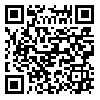Volume 8, Issue 4 (2024)
Manage Strat Health Syst 2024, 8(4): 340-349 |
Back to browse issues page
Research code: 28386
Ethics code: (IR.SUMS.NUMIMG.REC.1402.082)
Download citation:
BibTeX | RIS | EndNote | Medlars | ProCite | Reference Manager | RefWorks
Send citation to:



BibTeX | RIS | EndNote | Medlars | ProCite | Reference Manager | RefWorks
Send citation to:
izadi O, Keshtkaran V, Ravangard R. Factors Affecting Nursing Work Teams: A Cross-Sectional Study in Teaching Hospitals Affiliated with Shiraz University of Medical Sciences. Manage Strat Health Syst 2024; 8 (4) :340-349
URL: http://mshsj.ssu.ac.ir/article-1-720-en.html
URL: http://mshsj.ssu.ac.ir/article-1-720-en.html
1- MSc student in Health Services Management, Student Research Committee, School of Health Management and Information Sciences, Shiraz University of Medical Sciences, Shiraz, Iran
2- Instructor, Department of Health Services Management, School of Health Management and Information Sciences, Shiraz University of Medical Sciences, Shiraz, Iran
3- Professor, Health Human Resources Research Center, School of Health Management and Information Sciences, Shiraz University of Medical Sciences, Shiraz, Iran
2- Instructor, Department of Health Services Management, School of Health Management and Information Sciences, Shiraz University of Medical Sciences, Shiraz, Iran
3- Professor, Health Human Resources Research Center, School of Health Management and Information Sciences, Shiraz University of Medical Sciences, Shiraz, Iran
Abstract: (1848 Views)
Background: Nurses, as vital members of healthcare system, play a crucial role in improving society's health, which makes it very important to develop work teams among them. This study aims to investigate the factors affecting nursing work teams in teaching hospitals affiliated with Shiraz University of Medical Sciences in 2022.
Methods: This study was a cross-sectional study conducted in 2022 on a sample of 267 nurses from teaching hospitals affiliated with Shiraz University of Medical Sciences who were selected using simple random sampling and the stratified method proportional to the size. Data collection tool used in this study was a valid and reliable questionnaire comprising 2 parts: nurses' demographic characteristics and 39 items related to factors affecting work teams. Data analysis was performed using SPSS 23 software through Spearman correlation coefficient, Mann-Whitney, and Kruskal-Wallis tests, and finally, multiple linear regression (the Backward method).
Results: The results showed that the dimensions of "team goals" (22.93 ± 5.44) and "personality traits" (8.41 ±1.79) obtained the highest and lowest mean scores, respectively. Furthermore, the results of linear regression analysis showed that the effectiveness of work teams had a significant inverse relationship with the number of shifts (p = 0.034) and a significant direct relationship with employment in the intensive care units (p = 0.032).
Conclusion: Based on the findings, several suggestions can be made to enhance the effectiveness of nursing work teams, including hiring adequate staff to reduce the number of nurses' work shifts, particularly in the intensive care units, encouraging other hospital wards to follow the example of the work in intensive care units, establishing a system for determining and adjusting nurses' work shifts based on their opinions and priorities, conducting monthly, quarterly, and annual assessment based on attendance and participation in nursing work teams, encouraging more active nurses in this field, and considering various rewards for effective nursing work teams.
Methods: This study was a cross-sectional study conducted in 2022 on a sample of 267 nurses from teaching hospitals affiliated with Shiraz University of Medical Sciences who were selected using simple random sampling and the stratified method proportional to the size. Data collection tool used in this study was a valid and reliable questionnaire comprising 2 parts: nurses' demographic characteristics and 39 items related to factors affecting work teams. Data analysis was performed using SPSS 23 software through Spearman correlation coefficient, Mann-Whitney, and Kruskal-Wallis tests, and finally, multiple linear regression (the Backward method).
Results: The results showed that the dimensions of "team goals" (22.93 ± 5.44) and "personality traits" (8.41 ±1.79) obtained the highest and lowest mean scores, respectively. Furthermore, the results of linear regression analysis showed that the effectiveness of work teams had a significant inverse relationship with the number of shifts (p = 0.034) and a significant direct relationship with employment in the intensive care units (p = 0.032).
Conclusion: Based on the findings, several suggestions can be made to enhance the effectiveness of nursing work teams, including hiring adequate staff to reduce the number of nurses' work shifts, particularly in the intensive care units, encouraging other hospital wards to follow the example of the work in intensive care units, establishing a system for determining and adjusting nurses' work shifts based on their opinions and priorities, conducting monthly, quarterly, and annual assessment based on attendance and participation in nursing work teams, encouraging more active nurses in this field, and considering various rewards for effective nursing work teams.
| Rights and permissions | |
 |
This work is licensed under a Creative Commons Attribution-NonCommercial 4.0 International License. |







